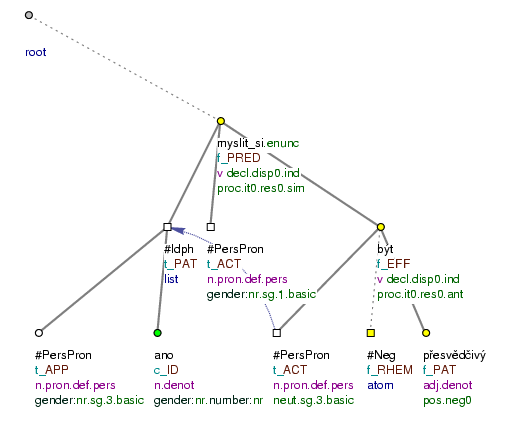The negating and affirmative particles (ano (=yes), ne (=no / not), nikoli/v (=no / by no means)) may take the role of argument or adjunct, if they are used in a metalinguistic sense. In these roles they are represented according to the rules for annotation of the identifying expressions described in Section 8, "Identifying expressions". A negating or affirmative particle used in a metalinguistic sense is always represented as an identification structure (see Section 8.1.3, "Identification structure"): The node representing a negating or affirmative particle has the functor ID.
On the boundary between expressions used in a metalinguistic sense and direct speech see Section 3.3, "Borderline cases between direct speech and meta-usage".
Examples:
O jeho {#Idph.PAT} ano.ID si myslím, že nebylo přesvědčivé. (=Regarding his yes, I think it was not convincing.) Fig. 8.286
Slovo ano.ID zaznělo jen jednou. (=The word yes was heard only once.)
Jeho {#Idph.ACT} ano.ID zaznělo jednoznačně. (=His yes sounded categorical.)
Své {#Idph.PAT} ano.ID si řekli na Staroměstské radnici.(=They said their yes at the Old Town Hall.)
